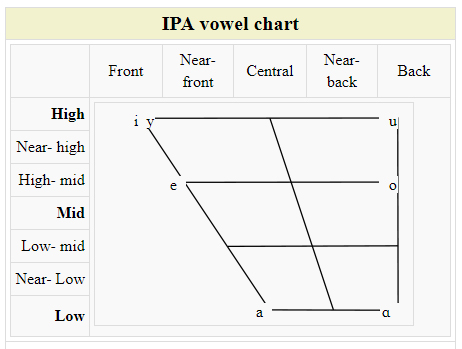Noshuja
Literally meaning "[of the] tongue," Noshuja was once the most common language spoken in northwestern Sidhae. Originated by the Tzelzì, Noshuja managed to survive the Kmetkhalin Empire's occupation of the territory thanks to the combined efforts of priests, scholars, and divine intervention.
Unfortunately, the drive to preserve the language as it was pre-invasion has also kept it out of common use. Though most natural citizens of the Tzelzìa̰n Myrinosha̰ understand the spoken language, only the educated tend to be verbally fluent. Fewer still are capable of reading or writing Noshuja script.
The most common place to hear Noshuja spoken are temples and universities, public rituals, or--for those who realize it--in the names of many Tzelzìa̰n Myrinosha̰ cities, organizations, and people.
Morphology
Noshuja is a SVO (Subject-Object-Verb) language. The phrase "The man went to bed" would be translated as "tzup tal tinho ki irip," [/tsup tal tiɳo ʔi irip/] lit. "The man went to bed."
Noun Morphology
| Singular | Plural | |||
|---|---|---|---|---|
| Nomative | man | tal /tal/ | men | Suffix: -o /-o/ talo /'talo/ |
| Accusative | man | Word order: object position tal /tal/ | men | Word Order: object position talo /'talo/ |
Definite & Indefinite Articles
| Definite Articles | Singular | Plural | Indefinite Articles | Singular | Plural | |||
|---|---|---|---|---|---|---|---|---|
| Nomative | the [man] tzup /tsup/ | the [men] tzup /tzup/ | Nomative | a [man] on /on/ | some [men] tzinh /tziɳ/ |
However, because the articles can be omitted when understood (generally when referring to a known subject, or to one's self), the phrase can be shortened in a few ways:
- "Tzup tinho ki irip." /tsup tiɳo ʔi ˈiɾip/ - "Man went to bed."
- "To tinho ki irip." /to tiɳo ʔi ˈiɾip/ - "He went to bed."
- "Tinho ki irip." /tiɳo ʔi ˈiɾip/ - "Went to bed."
- "Irip" /ˈiɾip/ - "Bed." This version, however, assumes the speaker was asked for the subject's whereabouts.
Likewise, articles are always dropped when referring to an uncountable subject. The phrase "Walking in the mud" will always translate to "Walking in mud," as mud is not immediately quantifiable.
Verbs
| Past | Present | Future | |
|---|---|---|---|
| studied | study | will study | |
| 1st.sg | Suffix: -(a̰)k /-(ɑ)k/ tzumeka̰k /ʦuˈmekɑk/ | Suffix: -(u)ra /uɾa/ tzumekura /ˌʦumeˈkuɾa/ | Suffix -i /-i/ tzumeki /ʦuˈmeki/ |
| 2nd.sq | Suffix: -(e)r /-(e)ɾ/ tzumeker /ʦuˈmekeɾ/ | Suffix: -(ì)l /-(y)l/ tzumekìl /ʦuˈmekyl/ | Suffix: -(i)ru /iɾu/ tzumekiru /ˌʦumeˈkiɾu/ |
| 3rd.sq | Suffix: -o /-o/ tzumeko /ʦuˈmeko | Suffix: -(u)k /-(u)k/ tzumekuk /ʦuˈmekuk/ | Suffix: -(e)n /-(e)n/ tzumeken /ʦuˈmeken/ |
| 1st.pl | Suffix: -e /-e/ tzumeke /ʦuˈmeke/ | Suffix: -u /-u/ tzumeku /ʦuˈmeku/ | Suffix: -a̰ /-ɑ/ tzumeka̰ /ʦuˈmekɑ/ |
| 2nd.pl | Suffix: -(ì)tzi /yʦi/ tzumekìtzi /ˌʦumeˈkyʦi/ | Suffix: -(a)nh /-(a)ɳ/ tzumekanh /ʦuˈmekaɳ/ | Suffix: -(a̰)l /-(ɑ)l/ tzumeka̰l /ʦuˈmekɑl/ |
| 3rd.pl | Suffix: -a /-a/ tzumeka /ʦuˈmeka/ | Suffix: -a /-a/ tzumeka /ʦuˈmeka/ | Suffix: -(u)ca /uca/ tzumekuca /ˌʦumeˈkuca/ |
Negation: Uses the particle a̰k /ɑk/ before main verb phrase.
Imperative: Uses the same conjugation as 2nd-person present-tense
Progressive aspect: Uses the word ‘now’ before main verb.
Derivational Morphology
Adjective → noun = suffix -ik
Noun → adjective = If ends with vowel: suffix -ka
Noun → verb = If ends with vowel: suffix -my
Verb → noun = If ends with vowel: suffix -my
Verb → adjective = If ends with vowel: suffix -l
Adjective → adverb = suffix -ɑ
One who Xs (e.g. paint → painter) = If ends with vowel: suffix -n; If ends with a consonant: -ìn /-yn/
Place of (e.g. wine → winery) = If ends with vowel: suffix -k; If ends with a consonant: -ìk /-yk/
Diminutive = If ends with vowel: suffix -ka
Augmentative = If ends with vowel: suffix -ɾ
Examples:
morrup /ˈmorup/ = authority
morrupìk /ˈmorupyk/ = lit. place of authority
morrupìn /ˈmorupyn/ = lit. person who performs authority
Vocabulary
Phonology
Consonant inventory: IPA ChartVowel inventory:



